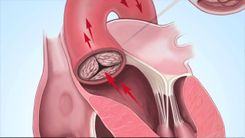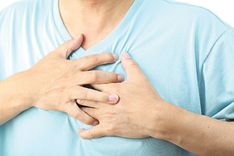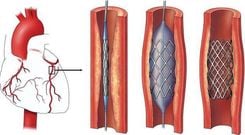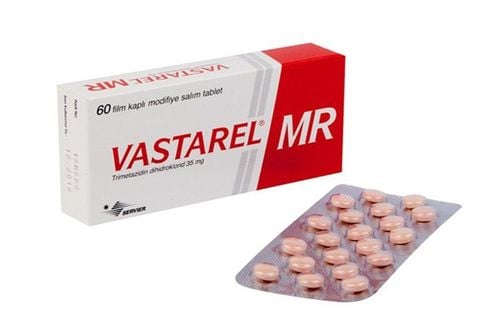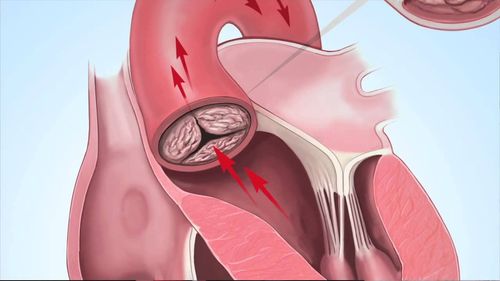Question
Hello doctor,
I recently had a heart physical examination because I was experiencing occasional sharp pains in my chest and a fast pulse, reaching 110 beats per minute. I also felt fatigued. During my general physical examination at the heart hospital, I underwent several tests, including an ultrasound, blood test, electrocardiogram, and stress test. The doctor concluded that everything was okay. However, I sometimes notice my heart rate increasing to 90 beats per minute during light activities, and I feel fatigued. My question is, is it normal to experience a rapid heart rate accompanied by fatigue? Thank you, doctor.
Anonymous customer
Answer
Answered by Dr. Le Thi Huong - Examination Department, Vinmec Times City International General Hospital.
Dear,
With the question "Is it okay to have a rapid heart rate with fatigue?", the doctor would like to answer as follows:
Some manifestations of a rapid heart rate:
- Nervous
- Shortness of breath.
- Heart "fluttering" in the chest.
- Beating too fast
This feeling can be felt in the throat, neck or chest, and can occur during exercise or at rest.
When to see a specialist: Transient and infrequent occurrences of this sensation, particularly those lasting only a few seconds, generally do not warrant referral to a specialist. However, it is important to consult a healthcare professional if you have a history of heart disease, experience frequent episodes, or notice a worsening of symptoms. They may recommend further investigations, such as tests or imaging studies, to identify the cause.
Identify hospitals that offer emergency cardiac care in case a rapid heartbeat is accompanied by:
- Angina pectoris.
- Fainting.
- Severe shortness of breath.
- Dizziness.
Usually, the cause of rapid heartbeat cannot be found immediately if you have had a rapid heartbeat when you go to the doctor, some common causes:
- Strong emotions, stress, anxiety, panic.
- Depression.
- Heavy physical exercise.
- Use of stimulants such as caffeine, nicotine, cocaine, amphetamines, cold and flu medications, cough medicines containing pseudoephedrine.
- Fever.
- Hormonal changes due to perimenopause, menopause or pregnancy.
Hyperthyroidism, hypothyroidism.
An unintentional rapid heartbeat can be a sign of a more serious medical condition such as arrhythmia, arrhythmia is a specialized term for a rapid heartbeat, tachycardia-bradycardia syndrome, or irregular heartbeat.
The following are factors that can trigger a rapid heartbeat:
- Excessive stress.
- Anxiety disorders or frequent panic attacks.
- Pregnancy.
- Use medications (stimulants, cold and cough medicines, or asthma/asthma medications).
- Hyperthyroidism.
- Arrhythmia, congenital heart disease, previous myocardial infarction, previous heart surgery, etc.
Except for concomitant heart disease, rapid heartbeat usually only causes a few mild complications. For people with cardiovascular problems, serious complications are as follows:
- Syncope: When the heart beats too fast, a sudden drop in blood pressure will occur, causing fainting. It seems that there is a serious cardiovascular problem such as heart valve disease, congenital heart disease or tachycardia, etc.
- Cardiac arrest: Although rare, tachycardia can be life-threatening and cause the heart to stop beating.
- Stroke: often occurs in atrial fibrillation, easily forming blood clots, causing cerebral embolism
- Heart failure: Long-term reduction in heart contractility causes arrhythmia (ventricular tachycardia, ventricular fibrillation, atrial fibrillation, etc.) which can cause the above complications.
A specialist will examine and take a medical history, if necessary, the doctor will order blood tests, imaging tests, and functional tests to find the cause, some very basic tests:
- ECG (Electrocardiogram): Helps detect regular or irregular heart rhythms and syndromes related to arrhythmia. ECG can be measured when the patient is at rest or when the patient is exercising.
- Holter electrocardiogram: The hospital will provide a portable device that continuously records the heart's electrical activity throughout 24 to 72 hours. This allows for the detection of tachycardia, which is limited by standard ECG.
- Echocardiogram: Provides details on imaging and contractile function of the heart.
- And other necessary tests (depending on the examination).
When the underlying cause of tachycardia is unclear, specialists typically recommend lifestyle modifications to avoid potential triggers (as listed above) rather than prescribing specific treatments. Treatment is then tailored to any identified underlying heart condition.
Health education message:
- Reduce stress: Relax, exercise, practice breathing, etc.
- Avoid stimulants
- Avoid drugs and addictive substances.
In your case, you have had a thorough Cardiology examination and concluded that there is no abnormality, you should rule out thyroid disease such as hyperthyroidism, which can also cause rapid heart rate and fatigue. You should have a thyroid ultrasound and do thyroid function tests such as FT3 FT4 and TSH.
If you still have questions about rapid heart rate with fatigue, you can go to a hospital in the Vinmec Health System for further examination and consultation. Thank you for your trust and for sending questions to Vinmec. Wish you good health.
Best regards!
Please dial HOTLINE for more information or register for an appointment HERE. Download MyVinmec app to make appointments faster and to manage your bookings easily.

